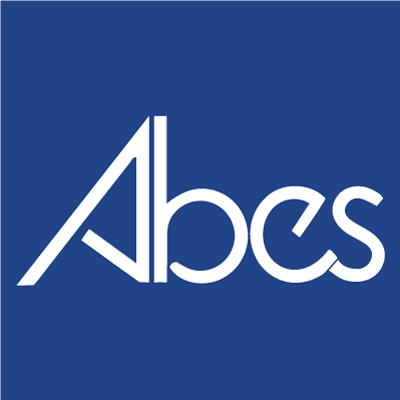Working as a community support worker is one of the most rewarding career paths a person can embark on. They are liaisons of hope, understanding, compassion, and fulfillment for countless individuals who need help because of a disability, trauma, age, and several other factors that can put a person at-risk in society.
If you’re passionate about helping people, solving problems, and improving the quality of life of others, this might be the job for you! Here are answers to 10 of our most frequently asked questions about community support workers in Alberta.
1. What Do Community Support Workers Do?
As a community support worker (CSW), you will be trained for and expected to manage a wide spectrum of clientele who need help in several different areas of their lives. This can include working with people who have developmental disabilities, have experienced trauma, live with mental health and/or addiction issues, and so much more.
2. What Is a Typical Day Like as a Community Support Worker?
Each day, you’ll work with a number of vulnerable populations, finding ways to unify resources and determine the best solutions for those you work with. This could mean helping someone with legal services, assisting with employment opportunities, inquiring about financial assistance, finding affordable housing, and anything else that the individual may need help with.
Few positions offer the opportunity to be such an integral part of people’s lives, but community support workers truly make a difference. You’ll be working alongside other health and social service professionals who operate as a team to give the best possible support to the members of our community that need it most.
3. What Are the Educational Requirements For Becoming a Community Support Worker in Alberta?
To become a Community Support Worker in Alberta, Canada, you typically need to obtain a diploma or certificate in a related field, such as human services, social work, or community rehabilitation. Some institutions in Alberta offer specialized programs in Community Support Work. In addition, having experience working or volunteering with individuals with disabilities or mental health challenges can be a valuable asset.
4. What Are Some Essential Qualities of a Successful Community Support Worker?
A successful Community Support Worker should possess strong interpersonal skills, empathy, patience, and excellent communication skills. They should be adaptable, resourceful, and able to work both independently and as part of a team. Additionally, having a strong understanding of cultural diversity and being able to work with people from various backgrounds is crucial in this role.
5. What Are the Key Differences Between a Community Support Worker and a Social Worker?
In Canada, the key differences between a Community Support Worker (CSW) and a Social Worker lie in their educational requirements, scope of practice, and professional regulation. While CSWs usually hold a diploma or certificate in a related field, Social Workers are required to have a bachelor’s or master’s degree in social work. CSWs provide direct support to clients, focusing on daily living tasks, skills development, and accessing community resources. Social Workers, on the other hand, may take on a broader range of responsibilities, including assessment, counselling, and case management.
Interested in learning more about the Community Support Worker Program at ABES? Contact our admissions team today!
6. Are Community Support Workers Regulated in Alberta, Canada?
Community Support Workers are not currently regulated as a distinct profession in Alberta, Canada. However, they often work under the supervision of regulated healthcare professionals, such as social workers or registered nurses. Many CSWs voluntarily choose to join organizations like the Alberta Council of Disability Services (ACDS), which provides resources, training, and advocacy to support workers and organizations in the field.
7. How Can Someone Find Employment As a CSW?
To find employment as a Community Support Worker in Alberta, job seekers can search online job boards, visit the websites of non-profit organizations and community agencies, or utilize social media platforms like LinkedIn.
Networking through local community groups, colleges, and professional associations, such as the Alberta Council of Disability Services (ACDS), can also be an effective way to discover job opportunities. Additionally, participating in volunteer work or internships can help build experience and connections in the field.
8. What Is the Difference Between Aged Care, Disability & Addictions Support Workers?
Being a community support worker in Alberta gives you the chance to work in various environments and locations depending on the demands of your community and your interest level in a particular sector. The different titles for types of support workers often refer to the populations that you would be working with most.
Here are just some of the fields you could find yourself working in:
- Adult & Aged Care
- Mental Health & Addiction Support
- Developmental Disabilities
- Parenting Support
- Homeless Shelters & Temporary Living
- Women’s Shelters
- Teen Pregnancy Support
- Newcomer & Immigration Services Support
- Foster Home Support
- Youth & Family Support
9. How Much Do Community Support Workers Make?
The median wage for a community support worker in Alberta is $20.50/hour. The high-average wage is $27.00/hour. According to ALIS, the average salary for community disability practitioners and community service workers is around $41,000.
10. What Is the Job Outlook For Community Support Workers in Alberta, Canada?
The job outlook for Community Support Workers in Alberta, Canada, is positive due to the ongoing demand for support services for individuals with disabilities, mental health challenges, and other complex needs. The aging population and increased awareness of mental health issues also contribute to the growing need for skilled CSWs.
Alberta Community Support Workers
Alberta Business & Educational Services (ABES) is a vocational college located in Calgary, Alberta, that offers a variety of healthcare and medical school training programs. We offer a 6-month Addiction and Disability Community Support Worker Diploma that has a 93% employment rate among its graduates.
Learn more by contacting our admissions team today, and start your journey towards making a difference in your community!


